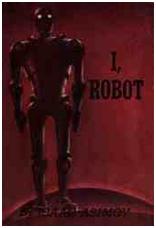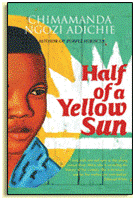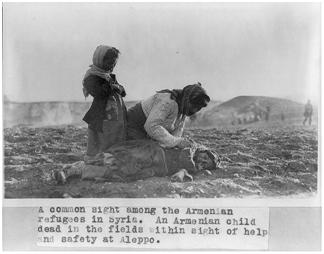I am listening to this – and it is gripping, Kate Mosse tells a good story.
Category: Books
Belief or Nonbelief by Carlo Martini & Unmberto Eco
This was originally published August 2012
 What are the dividing lines between Catholic Christians and secularists? Eco (author of Name of the Rose) and Cardinal Martini (in the Catholic corner) discuss four issues: abortion, why women cannot be ordained, hope and the future of mankind and the basis of ethics. Perhaps not the burning issues that many today would think need to be answered, but this book was written in the context of the impending millennium where some predicted this would bring in the end of civilisation as we know it. Today the burning issues would be child abuse, homosexuality, Darwinism or even the environment. Perhaps another age (not too long ago) would have included the just war or nuclear weapons.
What are the dividing lines between Catholic Christians and secularists? Eco (author of Name of the Rose) and Cardinal Martini (in the Catholic corner) discuss four issues: abortion, why women cannot be ordained, hope and the future of mankind and the basis of ethics. Perhaps not the burning issues that many today would think need to be answered, but this book was written in the context of the impending millennium where some predicted this would bring in the end of civilisation as we know it. Today the burning issues would be child abuse, homosexuality, Darwinism or even the environment. Perhaps another age (not too long ago) would have included the just war or nuclear weapons.
The discussion is in the form of correspondence and the reader is left with the impression of two men with deeply held beliefs who are compassionate, sincere and humane. Both represent the good qualities of good men. What divides them, apart from faith in God? This question is of supreme importance, for not only does it address issues of common ground in the public arena but also a much more interesting question – what drives altruism? Why would one human being lay down his/her life for another?
The problem that Eco faces is that he was a Catholic, he grew up in a Catholic community, that he is inheritor of the great panoply of Christian thought and ethics just like most of us from the western European world (including North America and other corners of the English speaking world). We share a common set of values that includes the concept of human dignity. And what are the ultimate values, the values that one would lay down one’s life? There are surely two questions that need to be answered, what constitutes the values of the philosopher’s good life – and the second, why should I sacrifice my life for these values? Eco cannot distance himself sufficiently from his Catholic heritage to answer these questions.
For our society, as inheritors of Western European culture, the ultimate values are arrived at as a dialogue between the Christian tradition and the humanist/secularist challenge. Both challenge and refine each other. This book is one part of that dialogue.
eBook: from BooksOnBoard, publisher SkyHorse Publishing Inc.
Now reading in October
This October I decided to go for a recently published novel – Sebastian Faulks “A Possible Life”. I bought this as an eBook from Books on Board. There is one advantage to not owning a kindle – I can shop around for books. I had intended to read J K Rowling’s A Casual Vacancy , but at £11.99 it is a little expensive, so I shall wait for the price to drop. I still have Hilary mantel’s Wolf Hall to read. I have already listened to this, so the excitement is not there to reread it. After all, the subject is a particularly brutal time in English history, when the king has become a tyrant seemingly hell-bent on bankrupting the country in pursuit of his vanity projects.
I have also acquired Kamin Mohammadi’s The Cypress Tree, a story about Iran. Should be interesting to compare this with Reading Lolita in Teheran.
Aleppo now and during the Armenian Genocide
“in late August (2012) Human Rights Watch reported that targeted artillery shelling and bombing raids on ten bakeries specifically in Aleppo, “killing and maiming scores of civilians who were waiting for bread.”
edition.cnn.com/2012/09/22/world/meast/syria-civil-war/
Aleppo is no stranger to human misery and degradation as a totalitarian regime inflicts its wrath on a people. Today we watch as brutality after brutality is inflicted on the Syrian people for daring to challenge those on power. The Assad clan is supported by Iran and now it seems that it is getting backup and support from North Korea. In 1915, 97 years ago, it was the Armenian people who were the victims as they were marched from their communities into the Syrian and Palestinian desert to be left to die.
The saddest thing of all is that the lessons of this brutal genocide were learnt well by those who wish to perpetuate evil. The shortcomings and inefficiencies of the genocide were analysed by the Nazis, so that there systematic slaughter of the Jews could be more effective and consume less resources. The lesson that brutality can win has been taken to heart by those who run Iran and certainly was learnt by Saddam Hussein and now by Assad in Syria. Can we learn how to prevent such massacres and abuses of human dignity?
When I was a little girl, I was taught the Catechism at school, and we were told that each and every human being is made in the image and likeness of God. If more people truly believed that and let that inform there actions and decisions, then maybe, just maybe, the world would change. It would be very sad to think that genocides are always going to be part of human history.
Aleppo 1915
Picture from the Devolution X Blog article about Armenia
I, Robot by Isaac Asimov
 The story line is simple and reflects the origin of the book, nine inter-related stories first published in Science Fiction magazines between 1940 and 1950. The stories are based on interviews with Dr Susan Calvin, the chief robopsychologist at US Robots and Mechanical Men and chronicle the development of the robots and teh positronic brain.
The story line is simple and reflects the origin of the book, nine inter-related stories first published in Science Fiction magazines between 1940 and 1950. The stories are based on interviews with Dr Susan Calvin, the chief robopsychologist at US Robots and Mechanical Men and chronicle the development of the robots and teh positronic brain.
Asimov invented the robot that we know and love and his legacy is felt throughout the science fiction world. Data in Star Trek: the Next Generation is powered by the positronic brain.
The three laws
These are hardwired into the positronic brain and provide a framework for robotic behaviour.
- A robot may not injure a human being or, through inaction, allow a human being to come to harm.
- A robot must obey the orders given to it by human beings, except where such orders would conflict with the First Law.
- A robot must protect its own existence as long as such protection does not conflict with the First or Second Laws.
There is a question that needs to be asked; do these three laws make robots inherently more moral than human beings. This question is explored in the eighth story, Evidence. Given these three laws, how can you differentiate a humanoid robot from a really good man?
Evidence is the prelude to the next question – if Robots are more moral to human beings, should they rule the world?
The benign dictatorship
Suppose super robot brains are developed, brains that are built upon the Three Laws or Robotics – so that they would never harm human beings, and these brains were capable of processing immense quantities of information , enough to run the world. The promise is that war would be eliminated, hunger eradicated and every human desire for self fulfilment could be delivered. Why not, then, allow thaese entities run the world. Heaven on earth? I, Robot ends with this scenario. The earth is divided into 4 regions, and each region has a superbrain referred to as Machines. There is no more war, no more hunger, no more religious intolerance..
The big question : Would you vote in this system? Why (or why not)?
Links
Now reading in September
September is when we go away, this year to the New Forest. So I need something to read. After the Angel’s Game and The Shadow of the Wind, I have decided to go for something a little less thought provoking.
So this is my reading list for my holiday:
I Robot by Isaac Asimov. This was one of the offerings from Surrey County Council, so I downloaded it. It is an enjoyable read and brings back happy memories of those exam years. When I was revising for my O-levels and A-levels I read avidly, mostly Science Fiction – often several books a week.
Wolf hall by Hilary Mantel. I have listened to this as an audio book an now I shall read the book. The English Reformation is fascinating, for many of the key players, Cromwell, Wolsey, More are not from the aristocracy. More was the son of a lawyer and Cromwell and Wolsey sons of tradesmen. I will argue that England only became great when the English people shed the shackles of servitude to the monarch and took matters into their own hands. Here we see the beginning, a process that reaches its culmination when Oliver Cromwell, great nephew of Thomas Cromwell seizes power. England was never the same again, its people were at last in control.
Sandcastle Girls by Chris Bohjalian. I really enjoyed Victoria Hislop’s The Thread. This book covers the Armenian genocide (but the Turks insist that there was no genocide).
The Varieties of Religious Experience by William James
The Shadow of the Wind second post
First published: July 2012
 I have just finished reading this book. A delight to read. What kind of book is it? A love story? A historical novel? A thriller. A comedy – or a tragedy. Like all great books, this book does not easily fit into such categories for it is a multi-layered novel.
I have just finished reading this book. A delight to read. What kind of book is it? A love story? A historical novel? A thriller. A comedy – or a tragedy. Like all great books, this book does not easily fit into such categories for it is a multi-layered novel.
So some observations
Syria is descending into civil war. The cruelty and brutality will beggar belief. Zafón’s book is set against the recovery from such a civil war. The Spanish Civil War ended finally in April 1939 – Barcelona had fallen to Franco’s republicans in January. The aftermath of the civil war was cruel and brutal. Even 10 years later, the repercussions can still be felt.
Stalking the streets is Inspector Fumero, a psychopath who enjoys cruelty, who glories in prolonging the suffering of his victims and specialises in murder. Is Fumero’s characterisation over the top? Sadly no, for we just have to look at what is happening in so many parts of the world to realise that there are instances of Inspector Fumero in all totalitarian regimes.
The story hinges on lies and the suppression of the truth. The character of Julian Carax, the fictional author of the Shadow of the Wind, falls in love with his benefactor’s daughter, Penelope. But the untold truth is that Julian is in fact his benefactor’s illegitimate son. The love affair is ended tragically and for Penelope, barbarically. Julian is forced into exile. And now the second distortion of the truth – the fate of Penelope is kept from Julian by his closest friend. But when Julian discovers the truth, then another tragedy unfolds. Julian sees himself accursed, the devil, and scours Barcelona for copies of his work to destroy.
And another motif is bought into play – the motif of redemption.The boy Daniel is entranced by the work of Julian Carax, he wants to know about the author, there is no ulterior motive. For so long, Julian had regarded himself as a thing absolutley outside the decency. Yet Daniel, with his enthusiasm and innocence remins Julian of what he once was. Slowly Julian changes, and when the pregnant Bea has had to flee from the wrath of her family, it is Julian who takes her it and protects her. The story of Penelope and Julian echoes the story of Daniel and Bea. History does not repeat itself and Bea and Daniel escape the tragedy that engulfed Julian’s life. At the end of the novel we find that Julian has begun writing again.
It is not often that you come across a book that is so satisfying to read and stays with you . This is just such a book.
http://en.wikipedia.org/wiki/The_Shadow_of_the_Wind
Updated: July 9, 2012 at 6:10 pm
Half of a Yellow Sun by Chimamanda Ngozi Adichie
Audio book read June 2007, first published July 2012
 This is a story of a family caught up in the terrible events of the Biafran War. In the 1960’s we had pictures of terrible starvation in Biafra – the images of skeletal, pot-bellied children stay with me even today. The tragedy was that Nigeria had the potential to be a rich country, and yet the population was starving to death because of the intransigence of a few generals. One wonders if such a situation would be tolerated today.
This is a story of a family caught up in the terrible events of the Biafran War. In the 1960’s we had pictures of terrible starvation in Biafra – the images of skeletal, pot-bellied children stay with me even today. The tragedy was that Nigeria had the potential to be a rich country, and yet the population was starving to death because of the intransigence of a few generals. One wonders if such a situation would be tolerated today.
The book was an eye-opener onto an African world, from an African perspective at a time of appalling suffering. Biafra was a nation state that reached out for independence yet starved into submission and this story follows this process through the lives of Odenigbo, a university professor, Olanna and Ugwu, Odenigbo’s house boy. Olanna is sometimes described as Odenigbo’s mistress, but today we would describe her as Odenigbo’s partner.
There is meat enough in the relationship between Odenigbo and Olanna without a civil war. This begins with a story of middle class Africans, educated in English and treading the line between traditional African and global/British middle-class culture. Olanna and her twin sister Kainene are modern African women from a wealthy family. There is the personal level in this story bringing to life the events that we witnessed through news programmes. What do you do when your partner impregnates another woman (although if Ugwu’s account is to be believed, Odenigbo is tricked into this)? How do you cope when your relatives are massacred in an inter-ethnic uprising? And what impact does it make on you when you have to live in a refugee camp?
Half of a Yellow Sun does what all great literature should do – open the doors into a different world and then reveal a shared humanity. It is worth reading
Links
http://www.halfofayellowsun.com/index.php
http://www.guardian.co.uk/books/2006/aug/19/fiction.shopping2
http://en.wikipedia.org/wiki/Half_of_a_Yellow_Sun
Audio book: http://www.audible.co.uk/pd/ref=sr_1_3?asin=B004EWB8O2&qid=1342363666&sr=1-3

